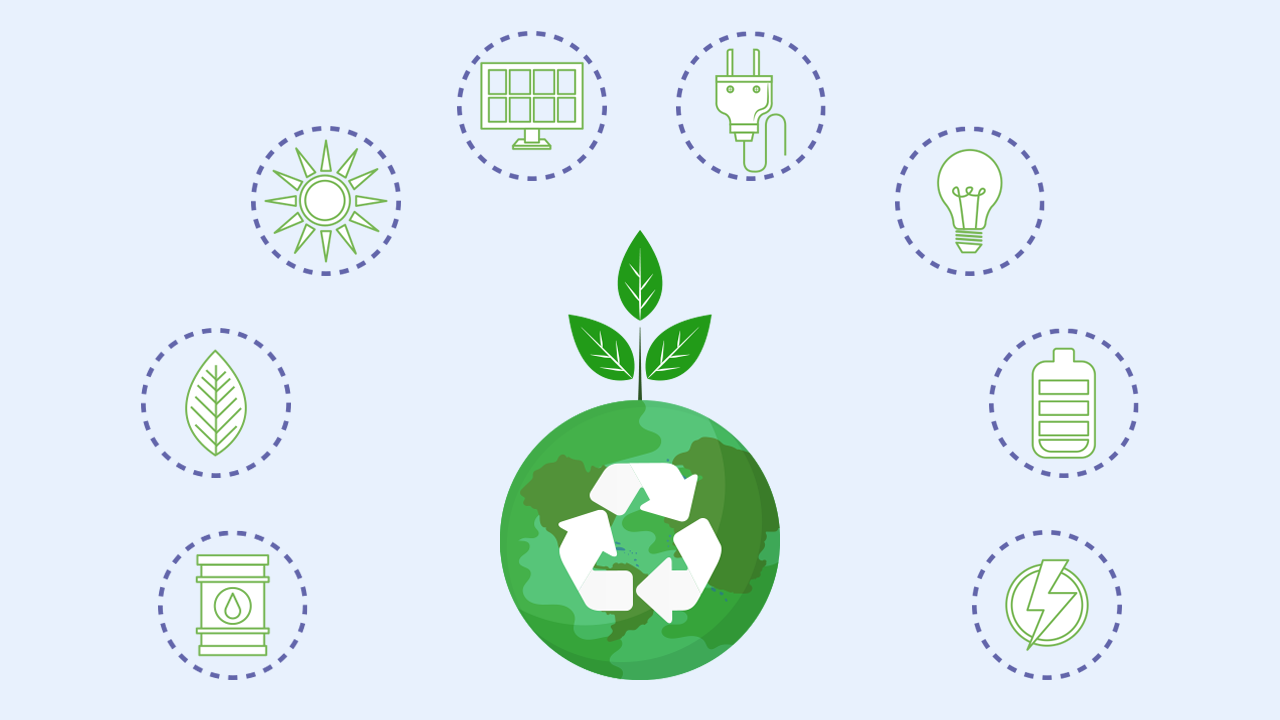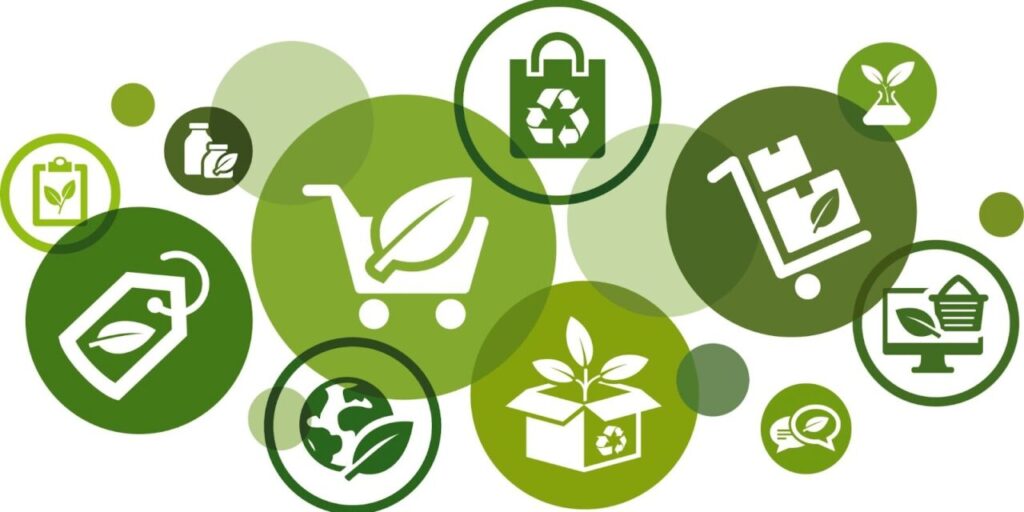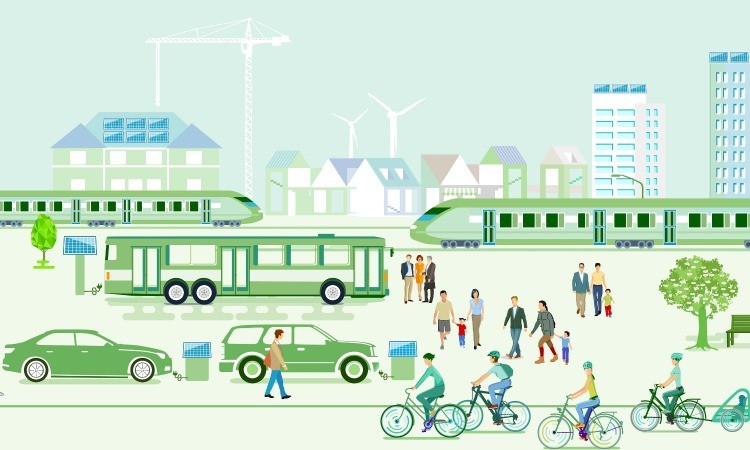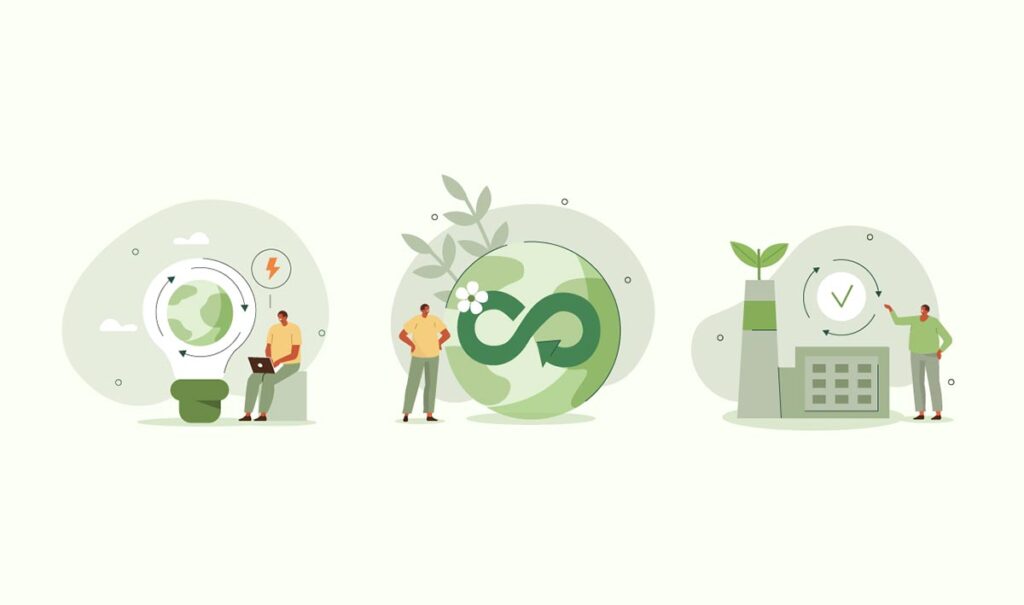In today’s fast-paced corporate world, building a sustainable business is no longer just an option; it’s a necessity. Eco-friendly practices not only contribute to environmental preservation but also enhance a company’s reputation, reduce costs, and attract eco-conscious consumers. At Westford for Business, we focus on empowering corporates and working professionals with the knowledge and tools they need to implement sustainable practices effectively.
Recent Trends and Data
- According to the International Renewable Energy Agency (IRENA), the global capacity for renewable energy reached 3,372 GW in 2022, indicating a growing shift towards sustainable energy sources.
- The Global Reporting Initiative (GRI) reported that over 90% of the world’s largest companies now produce sustainability reports, reflecting the increasing importance of transparency in eco-friendly practices.
- A study by IBM found that 57% of consumers are willing to change their purchasing habits to help reduce negative environmental impact.
The Importance of Sustainability in Business
Sustainability in business encompasses a wide range of practices aimed at minimizing the negative impact on the environment. These include reducing waste, conserving energy, and using resources more efficiently. Here are some compelling reasons why businesses should prioritize sustainability:
- Cost Savings: Implementing energy-efficient practices can significantly reduce utility bills and operational costs.
- Brand Reputation: Companies that prioritize sustainability often enjoy a positive public image, attracting customers and investors who value environmental responsibility.
- Regulatory Compliance: Adopting eco-friendly practices helps businesses stay ahead of regulations and avoid potential fines.
- Employee Satisfaction: A commitment to sustainability can improve employee morale and attract top talent who value corporate responsibility.
Key Eco-friendly Practices for Businesses

Adopting eco-friendly practices can help businesses reduce their environmental footprint, save costs, and enhance their reputation. Below are some detailed strategies for implementing sustainable practices in various aspects of business operations.
- Energy Efficiency

Energy efficiency is crucial for reducing a company’s carbon footprint and lowering energy bills. Here are some effective strategies:
- Upgrade to LED Lighting: LEDs consume up to 75% less energy than incandescent bulbs and last significantly longer. This reduces both energy consumption and replacement costs.
- Install Programmable Thermostats: These devices can automatically adjust heating and cooling settings based on occupancy and time of day, ensuring efficient energy use.
- Promote Remote Work: Encouraging employees to work from home reduces the energy required to power and cool large office spaces. This also decreases commute-related carbon emissions.
- Waste Reduction

Minimizing waste helps conserve resources and reduce landfill use. Businesses can implement the following practices:
- Comprehensive Recycling Programs: Set up recycling bins for paper, plastic, glass, and metals. Educate employees on proper recycling practices to maximize participation.
- Digital Documentation: Transitioning to digital documents reduces the need for paper, ink, and storage space. Use electronic signatures and digital contracts to further minimize paper use.
- Donate or Recycle Electronics: Instead of discarding old electronics, donate them to schools or nonprofits, or recycle them through certified e-waste programs.
- Sustainable Sourcing

Choosing sustainable suppliers and materials can significantly impact a company’s environmental footprint:
- Eco-friendly Suppliers: Partner with suppliers who prioritize sustainability, such as those using renewable energy or eco-friendly materials in their production processes.
- Recycled Materials: Use products made from recycled materials. For instance, opt for recycled paper, office supplies, and packaging materials.
- Local Sourcing: Source materials and products from local suppliers to reduce transportation emissions and support the local economy.
- Water Conservation

Water conservation practices help reduce water waste and lower utility costs:
- Low-flow Fixtures: Install low-flow faucets, showerheads, and toilets to reduce water usage without compromising performance.
- Drought-resistant Landscaping: Use native and drought-resistant plants for landscaping to minimize the need for irrigation.
- Leak Detection and Repair: Regularly check for and repair leaks in plumbing systems to prevent water wastage.
- Sustainable Transportation

Reducing the environmental impact of transportation involves encouraging sustainable commuting options and upgrading the company fleet:
- Carpooling and Public Transport: Encourage employees to carpool or use public transportation. Offer incentives such as subsidized transit passes or preferred parking for carpoolers.
- Bicycle Incentives: Provide bike racks and shower facilities to support employees who cycle to work. Consider implementing a bike-to-work program with financial incentives.
- Electric and Hybrid Vehicles: Invest in electric or hybrid vehicles for the company fleet. These vehicles produce fewer emissions than traditional gasoline-powered vehicles and can reduce fuel costs.
Steps to Implement Eco-friendly Practices

- Assess Current Impact: Conduct an audit to understand your current environmental footprint.
- Set Clear Goals: Define specific, measurable sustainability goals.
- Educate Employees: Provide training and resources to help employees adopt eco-friendly habits.
- Monitor Progress: Regularly review and adjust your sustainability strategies based on performance data.
- Engage Stakeholders: Communicate your sustainability efforts to customers, investors, and the community
Conclusion
Building a sustainable business is a continuous journey that requires commitment and strategic planning. By implementing eco-friendly practices, companies can not only reduce their environmental impact but also achieve long-term success and resilience. At Westford for Business, we are dedicated to helping corporates and working professionals navigate this journey with expert guidance and tailored solutions.
References
- International Renewable Energy Agency (IRENA) IRENA. (2022). “Renewable Capacity Statistics 2022.” Retrieved from IRENA
- Global Reporting Initiative (GRI) GRI. (2021). “The Next Era of Corporate Disclosure: Digital, Responsible, and Accountable.” Retrieved from GRI
- IBM Study on Consumer Preferences IBM. (2020). “Meet the 2020 consumers driving change: Why brands must deliver on omnipresence, agility, and sustainability.” Retrieved from IBM
- Sustainable Business Network Sustainable Business Network. (2022). “The Business Case for Sustainability.” Retrieved from Sustainable Business Network
- Environmental Protection Agency (EPA) EPA. (2021). “Greenhouse Gas Emissions from a Typical Passenger Vehicle.” Retrieved from EPA

